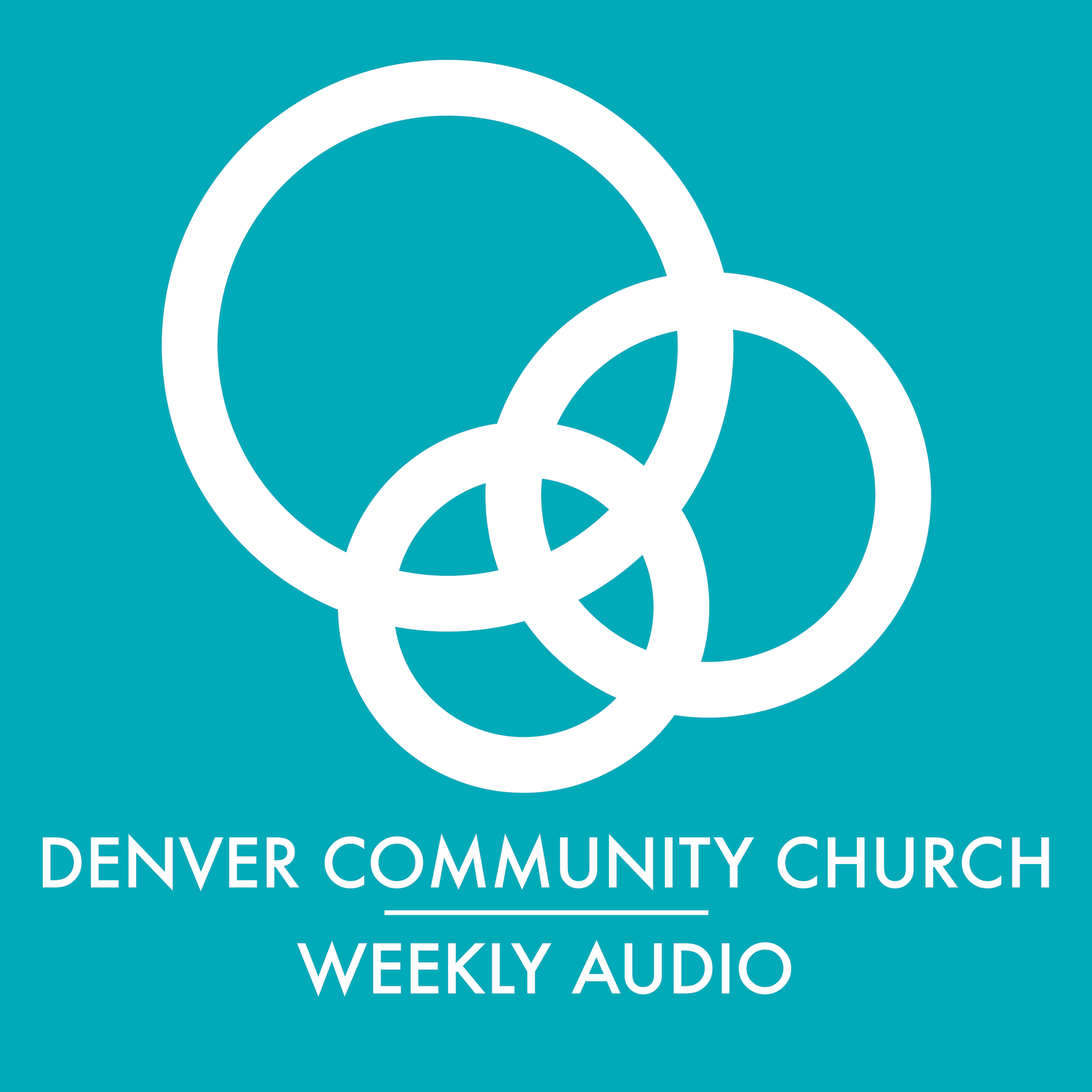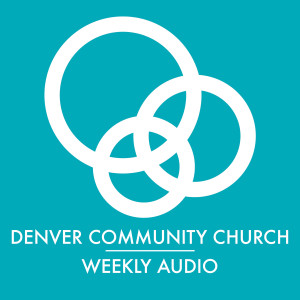
206.9K
Downloads
988
Episodes
At Denver Community Church, we explore and participate in the life of Jesus, so that we can be a healing presence in our world. Download the latest teachings here.
At Denver Community Church, we explore and participate in the life of Jesus, so that we can be a healing presence in our world. Download the latest teachings here.
Episodes

Sunday Aug 07, 2022
August 7, 2022: The Problem with Peacekeeping - Paula Williams
Sunday Aug 07, 2022
Sunday Aug 07, 2022
Join us as we continue our Summer guest teaching series "On The Move" as friend of DCC, TED speaker/coach, and pastor of Left Hand Church Paula Williams shares the type of peace making demonstrated by Christ, which is a far cry from mere peace "keeping".

Sunday Jul 31, 2022
July 31, 2022: On The Move - Landon Lynch
Sunday Jul 31, 2022
Sunday Jul 31, 2022
SUMMER SERIES: ON THE MOVE - God, the ultimate participant in all things, is always on the move - in our world, in others, in us. This summer our friends will come and share about where they observe God on the move - in their lives and in the life of the world. This week we hear from guest teacher Landon Lynch.

Sunday Jul 24, 2022
July 24, 2022: On The Move - Kristin Wright
Sunday Jul 24, 2022
Sunday Jul 24, 2022
SUMMER SERIES: ON THE MOVE
God, the ultimate participant in all things, is always on the move - in our world, in others, in us. This summer our friends will come and share about where they observe God on the move - in their lives and in the life of the world. This week we hear from guest teacher Kristin Wright.

Sunday Jul 17, 2022
July 17, 2022: On the Move - Cari Jenkins
Sunday Jul 17, 2022
Sunday Jul 17, 2022
SUMMER SERIES: ON THE MOVE
God, the ultimate participant in all things, is always on the move - in our world, in others, in us. This summer our friends will come and share about where they observe God on the move - in their lives and in the life of the world. This week we hear from guest teacher Cari Jenkins.

Monday Jul 04, 2022
July 3, 2022: On The Move - Michelle Cazas
Monday Jul 04, 2022
Monday Jul 04, 2022
SUMMER SERIES: ON THE MOVE
God, the ultimate participant in all things, is always on the move - in our world, in others, in us. This summer our friends will come and share about where they observe God on the move - in their lives and in the life of the world. This week we hear from guest teacher Michelle Cazas.

Sunday Jun 26, 2022
June 26, 2022: Is There A Doctor In The House? - Scott Oppliger
Sunday Jun 26, 2022
Sunday Jun 26, 2022
This week we’ll talk about our tendency to only see Jesus as the one who spent time with the sinners, the sick, and the outcasts of society, when in reality, he was just as likely to sit down with tax collectors, the religious elite, and those in power in his day. We must ask ourselves who, perhaps because of their high social stature, do we incorrectly consider to be beyond the influence of Jesus?

Sunday Jun 19, 2022
June 19, 2022: I’m Not Done Hoping For You - Amanda Lum
Sunday Jun 19, 2022
Sunday Jun 19, 2022
As Jesus heals a man whose friends lowered him through the roof (THE ROOF!), we see that Jesus is a God who seeks to heal us spiritually and physically, even when hoping on our own is too much to bear.

Sunday Jun 12, 2022
June 12, 2022: You Can If You Want To - Bekah Stewart
Sunday Jun 12, 2022
Sunday Jun 12, 2022
When we look at how Jesus interacts with those traditionally considered as 'unclean' and 'outsiders', we learn that He is not only willing to heal, but to become one of us, even to the point of being counted among the unclean.

Tuesday Jun 07, 2022
June 5, 2022: Did You Catch Anything? - Maggie Knight
Tuesday Jun 07, 2022
Tuesday Jun 07, 2022
We will explore how often we deem ourselves failures, unworthy and as those who don’t measure up. This causes us to wonder whether we have what it takes to join Jesus in the work he is doing in our world. This story assures all who are willing that the simple invitation of Jesus, “Follow me,” is in fact for everyone.

Sunday May 29, 2022
May 29, 2022: Deepest Gladness, Greatest Need - Mike Goldsworthy
Sunday May 29, 2022
Sunday May 29, 2022
As we seek to model our lives more and more after the life of Jesus, guest teacher Mike Goldsworthy challenges us to live more fully into who we were made to be in order to be a healing presence in our world. When we do this, we must ask, "where does our deepest gladness meet the world's greatest need?"
